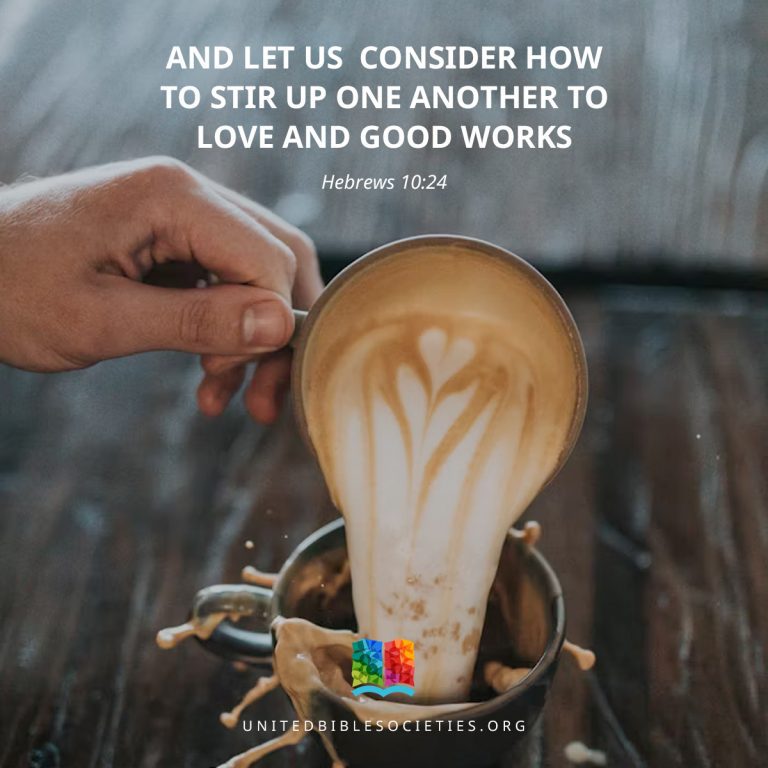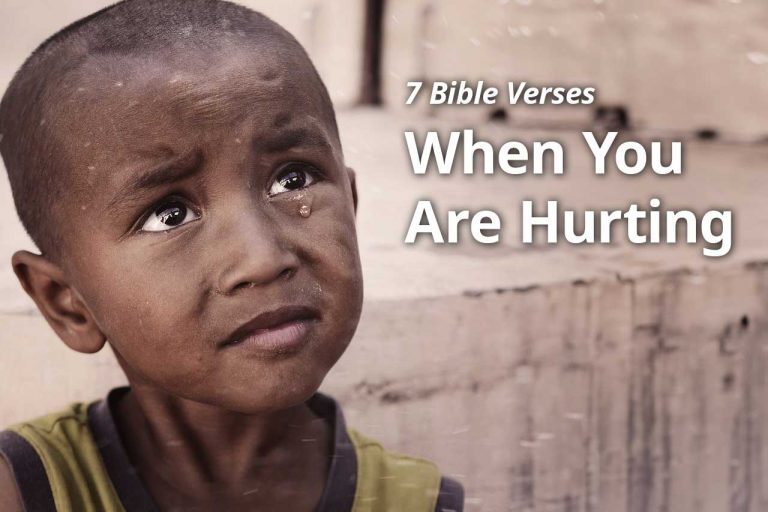Ŋen led̶a aləf d̶enəŋ ləneinu ŋəsa
(Maṯṯa 14:13-21Margus 6:30-44Luka 9:10-17)1 Orn Yesu nəŋəməñe nəŋuɽəd̶i ed̶əbarlda d̶oɽra d̶əbërnia d̶əbarlda d̶ə-Jalil, walla (Ṯabiriya). 2 Na led̶a lwaiña ṯalmaiyeteṯo alo ŋen ŋanṯa laseicu aŋwara isi gënəŋu gid̶u eled̶a lwuma. 3 Oro Yesu nəgabəṯa naiyən na ldəɽaŋe alo tu ṯaləmisya ilëɽəŋu. 4 Na Alfissa yafo ṯwaiñ isi yeɽo d̶əsa d̶-Alyawuḏ. 5 Yesu nəŋətud̶i nda nəŋənwane liji lwaiña ləmeta nano nəŋəlwaɽəṯi Filibus ṯa, “Ləgaɽwad̶aṯar ləgəbəlid̶ar ŋga aicəba ŋen ŋanṯa liji ildi aləse?” ( 6 Yesu galwaɽo ṯia ṯa aŋəmanwane, ŋen ŋanṯa gënəŋu galəŋeṯo ṯa gid̶i aŋid̶i ṯau.) 7 Filibus nəŋəmuɽəbiṯi eŋen ṯa, “Ndə jənei yeɽo ered̶ia gəɽijan, yaber yibəld̶a aicəba gwaiña ṯa led̶a pred̶ aɽwad̶aṯe ləmama gətetan.”
8 Nṯia ṯaləmis ywomən ibernua Anḏərawus orəba gə-Siman Buṯrus, nəŋeiṯi Yesu ṯa. 9 “Umia gëni gənəŋ ëli gerṯo ragif d̶enəŋ na ləmme ləɽijan, orn agaṯau? Laŋge ildi lerṯo ŋen ŋanṯau eled̶a ildi lwaiña kaiñ?” 10 Yesu nəŋaṯa. “Lwaɽəṯr led̶a pred̶ aləɽaŋe alo Na led̶a ildi lərrwa laɽo alaf d̶enəŋ ldəɽaŋe alo isei yerṯo ŋaiñano.” 11 Yesu nəŋape ragif nəŋërṯi Rəmwa nano, naŋəlnaice ṯaləmis ilëɽəŋu na ṯaləmis nelnanaice led̶a ildi ləɽaŋa alo, nəŋid̶i ṯia com eləmme ŋen ŋarno lënəŋulu lwonaṯa. 12 Na ndə led̶a ləbeṯo, Yesu nəŋeiṯi ṯaləmis ṯa, “Rarreid̶r ŋəsa iŋi ŋəṯënu alo ṯa laŋge alerṯe ləgirnia.” 13 Ŋen ŋafəṯia yënəŋulu yararreid̶u laŋge ləteṯa iragif d̶enəŋ ildi ləṯënu, na laŋgela ildi ləṯënu yënəŋulu yorənḏəjaico ŋuməra red̶ nəŋəməñe ŋəɽijan. 14 Ŋen ŋafəṯia ndə led̶a ləseicu aŋwara isi Yesu gid̶u, ldaṯa, “Đeṯəm fəŋu anabi igi geṯo alo.”
15 Yesu galəŋeṯo ṯa lwonaṯa leṯo aləmëndi, ṯa alamid̶i gəɽo eləŋ, na ŋen ŋafəṯia gënəŋu nəŋoɽəbaṯe naiyən təŋ aləsoŋ.
Ŋen Yesu gerldo nəŋau
(Maṯṯa 14:22-33Margus 6:45-52)16 Na ndə erregano gəɽo ṯaləmis ilëɽəŋu niyirwuṯi ed̶əbarlda, 17 niyënṯi id̶əpundr d̶eŋau ṯa aiyuɽəd̶i ed̶əbarlda aiyəɽe alo yi-Kafrnawum. Na alo neɽeṯe ŋərəmia d̶əge na Yesu gamulu gəleṯa nano. 18 Na ŋawa nəŋətwod̶e ṯaŋakaborṯo elo, ŋen ŋanṯa d̶əbera d̶ura d̶waiña ŋabəɽaŋa. 19 Ndə ṯaləmis yebəɽo eŋau iligano garno mil yiɽijin walla marldwan, niyəseici Yesu gəberlda nəŋau ed̶əpe na ṯaŋəleṯo nano, nid̶əñiṯalo kaiñ. 20 Orn gënəŋu nəŋəlwaɽəṯi ṯa, “Fiñi, ñerṯe ñagəd̶əñialo.” 21 Na yënəŋulu ṯaywonaṯo yimënəcia id̶əpundr na taltal d̶əpundria nḏabəṯa alo ed̶əɽe isi ləweṯa.
Ŋen led̶a ləpwaiña Yesu
22 Na eloman leṯeɽe led̶a ildi lwaiña ləṯurwa nëṯəndi gwomən gəd̶əbarlda, ldəseici d̶əpundria d̶əfo d̶onto, d̶ero d̶womən təŋ, na laləŋeṯo ṯa Yesu gero gəbënṯia ṯaləmisya ilëɽəŋu, orn ṯa ṯaləmis yaməño aləsoŋ. 23 Upəndria gwomən təŋ galo yi-Ṯabiriya geijomaṯo ṯwaiñ alo isi led̶a ləsaṯau aicəba, ndə Eləŋ Yesu gələŋəd̶einu i-Rəmwa d̶əge. 24 Ŋen ŋafəṯia ndə led̶a lwaiña ləseicu Yesu na ṯaləmis ilëɽəŋu lero, lënəŋulu ldënṯi igəpundria ldabəṯa alo yi-Kafrnawum, ŋen ŋanṯa aləpwaiñe Yesu.
Yesu gaɽo aicəba gəd̶əməṯia
25 Ŋen luɽəd̶u ed̶əbarlda ldəmafid̶iti ldəmeɽəd̶e ldaṯa, “Ya Ed̶a gəbërrəŋaid̶ia ŋen ageṯo ëli ndaŋəɽwa?” 26 Yesu nəŋəluɽəbiṯi eŋen ṯa, “Đeṯəm, d̶eṯəm, igandəlwaɽəṯia ṯa, ñaganəñaŋ ñagaiñəpwaiña, gerṯe ŋen ŋanṯa ñagaseicu aŋwara, orn ŋen ŋanṯa ñagaso ragif nəñabeṯe. 27 Ñerṯe ñëbəd̶ia ŋəmëɽria ŋen ŋanṯa ŋəsa iŋi ŋəməndëd̶ənia, orn ŋen ŋanṯa ŋəsa iŋi ŋəber ŋəmaməndëd̶ənia orn ŋanaid̶ia d̶əməṯia d̶əbəɽəbəte iŋi Id̶ia gə-Led̶a gid̶i aŋəndənaice, ŋen ŋanṯa Đaṯa ganaicəma ŋələŋe ṯa aŋid̶i ṯia.”
28 Nṯia lënəŋulu ldəmeiṯi ṯa, “Nanda ñagëbəd̶ia ṯau ṯa ñid̶i ŋəmëɽria ŋə-Rəmwa?” 29 Yesu nəŋəluɽəbiṯi eŋen ṯa, “Fəŋəmëɽria iŋi ŋə-Rəmwa, ṯa ñëndi ŋen ŋəlëɽəŋu igi rënəŋu rəd̶waṯəma.” 30 Ŋen ŋafəṯia lënəŋulu ldəmeiṯi ṯa, “Agid̶i ŋid̶i ŋaməla egwande, ṯa ñanwane oro ñëndi ŋen ŋəlaɽəŋa? Agëbəd̶ia ŋəmëɽria ŋəwande? 31 Đaṯanda eldaiñ ləpənde laso aicəba gəbërnia manna ed̶əñwa, ŋen ŋarno ŋəwërd̶ənu, ‘Rënəŋu rananicəlo aicəba elo ṯa aləse’.” 32 Na Yesu nəŋəleiṯi ṯa, “Đeṯəm, d̶eṯəm, igandəlwaɽəṯia ṯa, gerṯe Musa igi gənaicənde aicəba gəd̶eṯəm elo, orn fəŋu Bapa gəlëɽəñi igi gəndənanaica aicəba gəd̶eṯəm elo, 33 ŋen ŋanṯa aicəba igi Rəmwa rəndənanaica, fəŋu igi girəwa elo, na gananaica alo d̶əməṯia.” 34 Lënəŋulu ldəmeiṯi ṯa, “Ya Eləŋ, nanaicənde aicəba igi jaica jaica.” 35 Yesu nəŋəleiṯi ṯa, “Igënəñi egaɽo aicəba igi gənanaid̶ia d̶əməṯia. Ed̶a gənəŋ geṯəñe nano gaber gid̶i aŋəcoiñəṯe na ed̶a genəŋ gëndu ŋen ŋəlëɽəñi gaber gid̶i aŋerṯe d̶ərraŋalano kwai kwai. 36 Orn igalwaɽəṯənde com ṯa ñagaseicəñi na ñagero ñagəbëndia ŋen ŋəlëɽəñi. 37 Led̶a pred̶ ildi Đaṯa gəñəlnaica lid̶i aləñeṯa nano na igënəñi egaber egəned̶a ed̶a gənəŋ geṯəñe nano kwai kwai, 38 ŋen ŋanṯa igirəwu elo gerṯe ṯa yid̶i ŋen ŋəlëɽəñi, orn ṯa yid̶i ŋen ŋəlëɽəŋu igi gəd̶waṯəñe. 39 Na fəŋu ŋen ŋə-Đaṯa igi gəd̶waṯəñe ṯa egaber egəṯwia ed̶a gənəŋ gënəŋu gənaicəñe, orn ṯa igid̶i yiltud̶i eloman ildi lənḏurṯu alo. 40 Na fəŋen iŋi ŋə-Bapa gəlëɽəñi gwonaṯa ṯa led̶a ildi pred̶ ləseicu Id̶ia na ldëndi ŋen ŋəlëɽəŋu alerṯe d̶əməṯia d̶əbəɽəbəte, na ṯa igid̶i yiltud̶i eloman ildi lənḏurṯu alo.”
41 Nṯia Alyawuḏ ṯaiɽwataid̶o ŋaməɽa ŋen ŋanṯa gënəŋu gaṯa, “Igënəñi egaɽo aicəba girəwu elo.” 42 Lënəŋulu ṯalaṯa ṯa, “Gerṯe fə-Yesu id̶ia gə-Yusif igi ləgələŋeṯr eṯen na ləŋgen? Ŋen ŋafəṯia gënəŋu gabaṯa ṯa geṯo elo ṯau?” 43 Ŋen ŋafəṯia Yesu nəŋəluɽəbiṯi eŋen ṯa, “Ñerṯe ñaɽwataid̶ia nano. 44 Ed̶a gero gənəŋ gəɽwad̶aṯa geṯəñe nano, illi ndə Đaṯa igi gəd̶waṯəñe gəmabəled̶a, na igid̶i imatud̶i eloman lənḏurṯu alo. 45 Ŋen ŋawërd̶ənu enad̶am nalanəbiya ṯa, ‘Lënəŋulu pred̶ lid̶i alërrəŋeini ŋen i-Rəmwa’. Ŋen ŋafəṯia led̶a pred̶ lano Đaṯa na ldërrəŋeini ŋen iŋu, lid̶i aləñeṯa nano. 46 Ed̶a gero gənəŋ gəseicu Đaṯa, illi gënəŋu igi geṯo i-Rəmwa, gënəŋu gaseicu Đaṯa. 47 Đeṯəm, d̶eṯəm, igandəlwaɽəṯia ṯa, ed̶a gëndu ŋen ŋəlëɽəñi gerṯo d̶əməṯia d̶əbəɽəbəte.
48 “Igënəñi egaɽo aicəba igi gənanaid̶ia d̶əməṯia. 49 Eṯalanda eldalo ləpənde laso manna ed̶əñwa na ldaiye. 50 Fəŋu aicəba igi girəwu elo ṯa ed̶a gənəŋ gəɽwad̶aṯa gəsa gaber gid̶i aŋaiye kwai kwai. 51 Igënəñi egaɽo aicəba igi gəməṯo igi girəwu elo. Ndə ed̶a gənəŋ gəsa aicəba igi gid̶i aŋəməṯe bəɽəbəte, na aicəba igi igid̶i enaid̶e ŋen ŋanṯa alo fəŋu aŋəno ilëɽəñi, ṯa alo aiyəməṯe.”
52 Nṯia Alyawuḏ ṯaigered̶o ŋen nano niyaṯa, “Ŋen ŋanṯau ed̶a igi gaɽwad̶aṯa gand̶ənaica aŋəno ilëɽəŋu ñase?” 53 Ŋen ŋafəṯia Yesu nəŋəleiṯi ṯa, “Đeṯəm, d̶eṯəm, igandəlwaɽəṯia ṯa, ndə ñagəber ñagəsa aŋəno y-Id̶ia gə-Led̶a, na ñagəber ñagəṯia ŋəfəni ŋəlëɽəŋu, ñagaber ñiagəberṯia d̶əməṯia ano. 54 Ed̶a gəsa aŋəno ilëɽəñi na gəṯia ŋəfəni ŋəlëɽəñi, gënəŋu gerṯo d̶əməṯia d̶əbəɽəbəte, na igid̶i imatud̶i eloman ildi lənḏurṯu alo. 55 Ŋen ŋanṯa aŋəno ilëɽəñi yaɽo ŋəsa ŋəd̶eṯəm, na ŋəfəni ŋəlëɽəñi ŋaɽo d̶əṯia d̶əd̶eṯəm. 56 Ed̶a igi gəsa aŋəno ilëɽəñi na gəṯia ŋəfəni ŋəlëɽəñi gënəŋu gafəñau na igënəñi egafəmau. 57 Garno Đaṯa igi gəməṯo gəd̶waṯəñe na egaməṯo ŋen ŋanṯa Đaṯa, nṯia com ed̶a igi gəñəsa gid̶i aŋəməṯe ŋen ŋanṯañi. 58 Fəŋu aicəba igi girəwu elo, gerṯe garno orəba igi eṯalanda eldalo ləpənde ləso na ldaiye. Ed̶a gənəŋ gəsa aicəba igi gid̶i aŋəməṯe bəɽəbəte.” 59 Gënəŋu galwaɽo ŋen iŋi ndə gəbërrəŋaicia led̶a ŋen emajma, alo yi-Kafrnawum.
Ŋen iŋi ŋəɽo d̶əməṯia d̶əbəɽəbəte
60 Ŋen ŋafəṯia lwaiña eled̶a ildi ləteṯa Yesu ldaṯa ṯa, “Ŋen ŋwonḏəṯo, əsëgi gəɽwad̶aṯa gənna ŋen iŋi?” 61 Orn Yesu nəŋələŋini nano ṯa led̶a ildi ləmateṯa laɽwataid̶ia nano eŋen iŋi, nəŋəleiṯi ṯa, “Ŋen iŋi ŋëndid̶ia ñagaborṯa elo iñi? 62 Nṯia fəṯau ndə ñagəseicia Id̶ia gə-Led̶a goɽəbaṯo alo isi gəfau bətaŋəɽan? 63 Fəŋu Usila igi gənanaid̶ia d̶əməṯia, aŋəno yaber emad̶aṯa kwai kwai, ŋen iŋi igəlwaɽəṯənde ŋaɽo Usila na ŋaɽo d̶əməṯia, 64 orn led̶a lëni ləmaṯan eñaŋ lero ləbëndia ŋen ŋəlëɽəñi.” (Ŋen ŋanṯa Yesu galəŋeṯo ananoŋ əsëndəldi lero ləbëndia ŋen, na əsëgi gid̶i aŋəmanaid̶e.) 65 Na gënəŋu gaṯa, “Ŋen ŋaɽo ṯia igalwaɽəṯənde ṯa, ed̶a gero gənəŋ gəɽwad̶aṯa geṯəñe nano illi ndə Bapa gəlëɽəñi gəmid̶ia ṯa gaɽwad̶aṯa.”
66 Ŋen iliga ildei led̶a lwaiña ləmateṯa ldəmëuwujəṯi ŋëɽua, lderṯe ləmarraid̶ia nano təŋ.
Ŋen Buṯrus gəlwaɽo ṯa Yesu gaɽo Almasiya
67 Ŋen ŋafəṯia Yesu nəŋəlwaɽəṯi ṯaləmis ilëɽəŋu isi yeɽo red̶ neməñe eɽijan ṯa, “Ñaŋ com ñagwonaṯa ñagəñaṯad̶a?” 68 Siman Buṯrus nəŋəmuɽəbiṯi eŋen ṯa, “Ya Eləŋ ñagabəṯa əsëgi nano? Aganəŋa agerṯo ŋen iŋi ŋənaid̶ia d̶əməṯia d̶əbəɽəbəte, 69 na nanda ñagëndu ŋen na ñagaləŋeṯo ṯa aganəŋa agaɽo ed̶a Gətəɽe gə-Rəmwa.”
70 Yesu nəŋəluɽəbiṯi eŋen nəŋaṯa ṯa, “Igënəñi egero egəndwoṯa red̶ nəñaməñe ndəjan? Na ed̶a gənəŋ eñaŋ gaɽo usila geicia!” 71 Gënəŋu gaɽwata eŋen ŋə-Yaud̶a, id̶ia gə-Siman Iskariyuṯi. Gënəŋu gonto iṯaləmis red̶ neməñe eɽijan, igi gəbəla aŋəmanaid̶e.
Jesus Feeds Five Thousand
(Matthew 14.13-21Mark 6.30-44Luke 9.10-17)1 After this, Jesus went across Lake Galilee (or, Lake Tiberias, as it is also called). 2 A large crowd followed him, because they had seen his miracles of healing the sick. 3 Jesus went up a hill and sat down with his disciples. 4 The time for the Passover Festival was near. 5 Jesus looked around and saw that a large crowd was coming to him, so he asked Philip, “Where can we buy enough food to feed all these people?” ( 6 He said this to test Philip; actually he already knew what he would do.)
7 Philip answered, “For everyone to have even a little, it would take more than two hundred silver coins to buy enough bread.”
8 Another one of his disciples, Andrew, who was Simon Peter's brother, said, 9 “There is a boy here who has five loaves of barley bread and two fish. But they will certainly not be enough for all these people.”
10 “Make the people sit down,” Jesus told them. (There was a lot of grass there.) So all the people sat down; there were about five thousand men. 11 Jesus took the bread, gave thanks to God, and distributed it to the people who were sitting there. He did the same with the fish, and they all had as much as they wanted. 12 When they were all full, he said to his disciples, “Gather the pieces left over; let us not waste a bit.” 13 So they gathered them all and filled twelve baskets with the pieces left over from the five barley loaves which the people had eaten.
14 Seeing this miracle that Jesus had performed, the people there said, “Surely this is the Prophet who was to come into the world!” 15 Jesus knew that they were about to come and seize him in order to make him king by force; so he went off again to the hills by himself.
Jesus Walks on the Water
(Matthew 14.22-33Mark 6.45-52)16 When evening came, Jesus' disciples went down to the lake, 17 got into a boat, and went back across the lake toward Capernaum. Night came on, and Jesus still had not come to them. 18 By then a strong wind was blowing and stirring up the water. 19 The disciples had rowed about three or four miles when they saw Jesus walking on the water, coming near the boat, and they were terrified. 20 “Don't be afraid,” Jesus told them, “it is I!” 21 Then they willingly took him into the boat, and immediately the boat reached land at the place they were heading for.
The People Seek Jesus
22 Next day the crowd which had stayed on the other side of the lake realized that there had been only one boat there. They knew that Jesus had not gone in it with his disciples, but that they had left without him. 23 Other boats, which were from Tiberias, came to shore near the place where the crowd had eaten the bread after the Lord had given thanks. 24 When the crowd saw that Jesus was not there, nor his disciples, they got into those boats and went to Capernaum, looking for him.
Jesus the Bread of Life
25 When the people found Jesus on the other side of the lake, they said to him, “Teacher, when did you get here?”
26 Jesus answered, “I am telling you the truth: you are looking for me because you ate the bread and had all you wanted, not because you understood my miracles. 27 Do not work for food that spoils; instead, work for the food that lasts for eternal life. This is the food which the Son of Man will give you, because God, the Father, has put his mark of approval on him.”
28 So they asked him, “What can we do in order to do what God wants us to do?”
29 Jesus answered, “What God wants you to do is to believe in the one he sent.”
30 They replied, “What miracle will you perform so that we may see it and believe you? What will you do? 31 Our ancestors ate manna in the desert, just as the scripture says, ‘He gave them bread from heaven to eat.’”
32 “I am telling you the truth,” Jesus said. “What Moses gave you was not the bread from heaven; it is my Father who gives you the real bread from heaven. 33 For the bread that God gives is he who comes down from heaven and gives life to the world.”
34 “Sir,” they asked him, “give us this bread always.”
35 “I am the bread of life,” Jesus told them. “Those who come to me will never be hungry; those who believe in me will never be thirsty. 36 Now, I told you that you have seen me but will not believe. 37 Everyone whom my Father gives me will come to me. I will never turn away anyone who comes to me, 38 because I have come down from heaven to do not my own will but the will of him who sent me. 39 And it is the will of him who sent me that I should not lose any of all those he has given me, but that I should raise them all to life on the last day. 40 For what my Father wants is that all who see the Son and believe in him should have eternal life. And I will raise them to life on the last day.”
41 The people started grumbling about him, because he said, “I am the bread that came down from heaven.” 42 So they said, “This man is Jesus son of Joseph, isn't he? We know his father and mother. How, then, does he now say he came down from heaven?”
43 Jesus answered, “Stop grumbling among yourselves. 44 People cannot come to me unless the Father who sent me draws them to me; and I will raise them to life on the last day. 45 The prophets wrote, ‘Everyone will be taught by God.’ Anyone who hears the Father and learns from him comes to me. 46 This does not mean that anyone has seen the Father; he who is from God is the only one who has seen the Father. 47 I am telling you the truth: he who believes has eternal life. 48 I am the bread of life. 49 Your ancestors ate manna in the desert, but they died. 50 But the bread that comes down from heaven is of such a kind that whoever eats it will not die. 51 I am the living bread that came down from heaven. If you eat this bread, you will live forever. The bread that I will give you is my flesh, which I give so that the world may live.”
52 This started an angry argument among them. “How can this man give us his flesh to eat?” they asked.
53 Jesus said to them, “I am telling you the truth: if you do not eat the flesh of the Son of Man and drink his blood, you will not have life in yourselves. 54 Those who eat my flesh and drink my blood have eternal life, and I will raise them to life on the last day. 55 For my flesh is the real food; my blood is the real drink. 56 Those who eat my flesh and drink my blood live in me, and I live in them. 57 The living Father sent me, and because of him I live also. In the same way whoever eats me will live because of me. 58 This, then, is the bread that came down from heaven; it is not like the bread that your ancestors ate, but then later died. Those who eat this bread will live forever.”
59 Jesus said this as he taught in the synagogue in Capernaum.
The Words of Eternal Life
60 Many of his followers heard this and said, “This teaching is too hard. Who can listen to it?”
61 Without being told, Jesus knew that they were grumbling about this, so he said to them, “Does this make you want to give up? 62 Suppose, then, that you should see the Son of Man go back up to the place where he was before? 63 What gives life is God's Spirit; human power is of no use at all. The words I have spoken to you bring God's life-giving Spirit. 64 Yet some of you do not believe.” (Jesus knew from the very beginning who were the ones that would not believe and which one would betray him.) 65 And he added, “This is the very reason I told you that no people can come to me unless the Father makes it possible for them to do so.”
66 Because of this, many of Jesus' followers turned back and would not go with him any more. 67 So he asked the twelve disciples, “And you—would you also like to leave?”
68 Simon Peter answered him, “Lord, to whom would we go? You have the words that give eternal life. 69 And now we believe and know that you are the Holy One who has come from God.”
70 Jesus replied, “I chose the twelve of you, didn't I? Yet one of you is a devil!” 71 He was talking about Judas, the son of Simon Iscariot. For Judas, even though he was one of the twelve disciples, was going to betray him.



